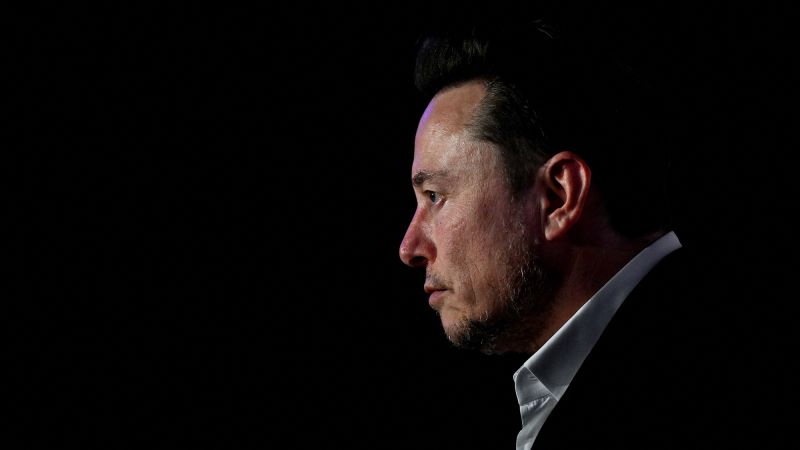The social media platform formerly known as Twitter is worth almost 80% less than two years ago when Elon Musk bought it, according to estimates from investment giant Fidelity.
X no longer trades publicly after Musk shelled out $44 billion to take it private in October 2022.
However, Fidelity discloses what it believes is the value of its shares of X, and those estimates serve as a closely watched barometer for the overall health of the company.
As of the end of August, those shares were worth just $4.2 million, according to a Sunday filing by Fidelity’s Blue Chip Growth Fund.
That new estimate marks a 24% drop in value from what Fidelity estimated as of the end of July. And it represents a staggering decline of 79% from the $19.66 million that Fidelity estimated the shares were worth in October 2022 when Musk acquired Twitter.
The new valuation from Fidelity implies that it believes X is now worth just $9.4 billion — a far cry from the $44 billion that Musk paid. Other investors could value X differently.
Analysts say Fidelity’s plunging price tag for X likely reflects shrinking ad revenue at the company, which no longer publicly releases quarterly financial metrics.
Fidelity declined to comment on individual companies.
X did not respond to a request for comment.
“Musk clearly overpaid for this asset,” Dan Ives, managing director and senior equity analyst at Wedbush Securities, told CNN in an email.
Ives said that he believes Twitter was really worth around $30 billion when Musk bought it, and today it’s worth closer to $15 billion. He said that while engagement on X is “strong,” ad pressure has persisted.
Under Musk’s ownership, some advertisers have expressed concerns about extreme content on the platform that they don’t want their brands linked to.
A recent global survey by Kantar found that a net 26% of marketers plan to decrease their spending on X next year, the steepest pullback from any major global ad platform. Just 4% of advertisers said they think X ads provide “brand safety” (certainty that their ads won’t appear near extreme content), compared with 39% at Google.
In November, Musk faced a backlash from brands, some of which halted spending on X, after the billionaire embraced an antisemitic conspiracy theory favored by White supremacists.
Musk later apologized for what he called his “dumbest” ever social media posting. However, during that apology, Musk also told fleeing advertisers: “Go f**k yourself.”
But X continues to be a major player in social media under Musk’s ownership.
The company said it had 570 million monthly active users during the second quarter, up 6% from the year before.
However, research firm Similarweb has found some drops in engagement.
X had 73.5 million monthly active users on iOS and Android combined in the United States in August, according to Similarweb data shared with CNN. That represents a drop of nearly 11% year over year and a 20% decline from October 2022.
Similarweb also found that US web traffic to X.com in August was lower than it was for Twitter.com before Musk bought it. However, Similarweb said X’s traffic numbers have been somewhat stronger outside the United States.
Gene Munster, managing partner at Deepwater Asset Management, said he doesn’t believe the value of X has dropped nearly as much as Fidelity’s estimates imply.
“Fidelity was overly aggressive. They are essentially cleaning house on the investment,” Munster told CNN.
Munster said that in the long run, he thinks X and the data the company has access to will be worth more than the $44 billion that Musk paid for Twitter.
“If you want a real-time understanding of what people are thinking, Twitter is the best source of that. And that is valuable,” Munster said.
It’s especially valuable because X data has helped train Grok, the artificial intelligence chatbot developed by xAI, Musk’s increasingly valuable AI startup.
X has emerged as the unique angle for Grok, which Munster said has the potential to be Musk’s biggest source of wealth.
“When Musk bought Twitter, investors didn’t realize we’d be taking off on AI as fast as we are,” Munster said. ““Musk buying Twitter is a case of better lucky than smart.”
Read the full article here




